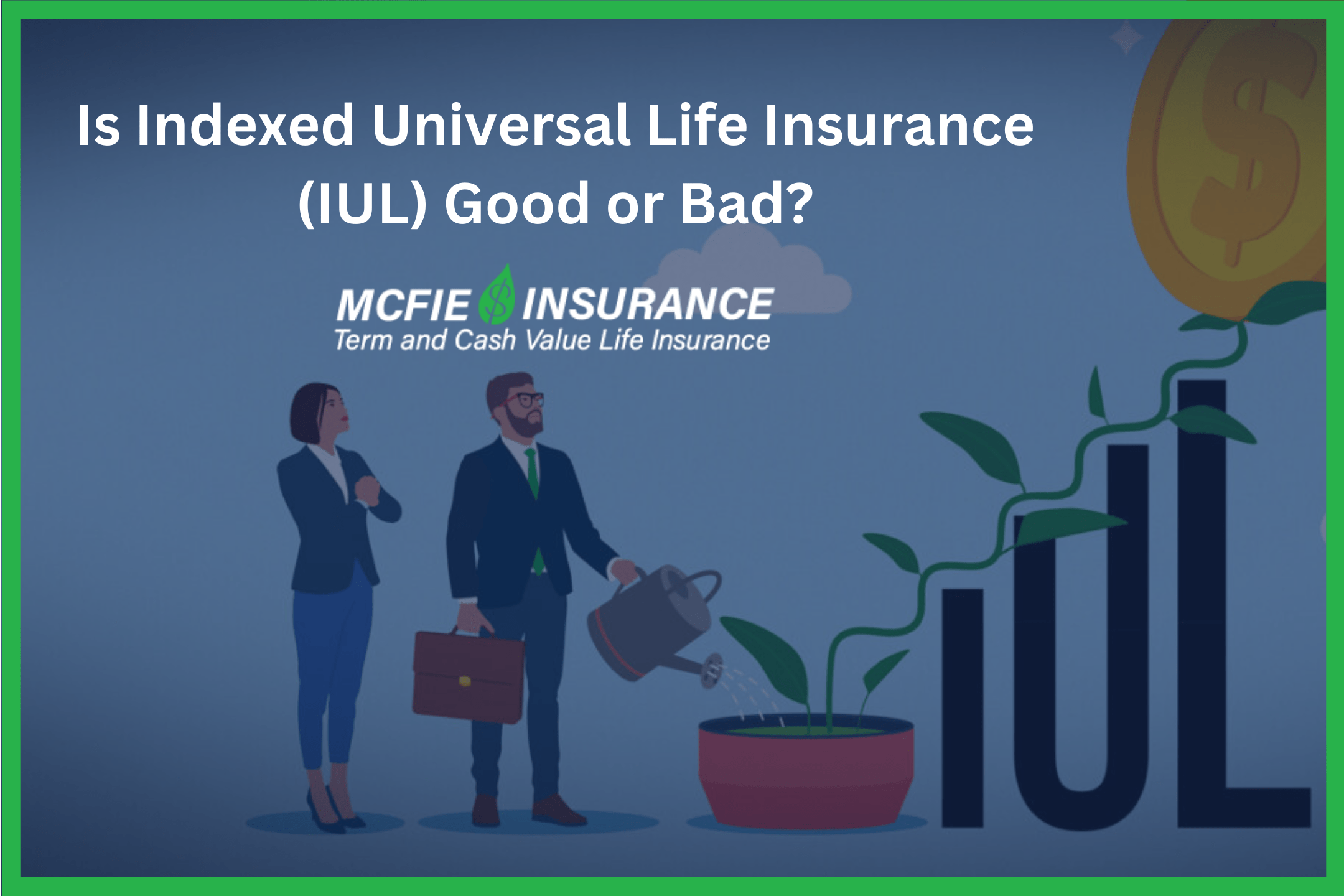All Categories
Featured
Table of Contents
Indexed Universal Life (IUL) insurance is a type of permanent life insurance policy plan that incorporates the functions of typical global life insurance policy with the capacity for cash money value development connected to the performance of a stock exchange index, such as the S&P 500 (Indexed Universal Life protection plan). Like other types of permanent life insurance policy, IUL offers a survivor benefit that pays out to the beneficiaries when the insured passes away
Cash money value buildup: A part of the costs repayments goes right into a cash money worth account, which gains rate of interest with time. This cash value can be accessed or borrowed against throughout the insurance policy holder's life time. Indexing alternative: IUL policies supply the chance for money value development based upon the performance of a securities market index.
Guaranteed Indexed Universal Life
As with all life insurance coverage products, there is additionally a set of dangers that insurance holders must be aware of before considering this kind of policy: Market threat: Among the primary threats connected with IUL is market risk. Since the money value growth is connected to the efficiency of a stock market index, if the index executes badly, the money worth may not expand as anticipated.

Adequate liquidity: Insurance holders should have a stable financial circumstance and be comfy with the superior payment needs of the IUL plan. IUL enables adaptable premium repayments within certain restrictions, but it's important to preserve the plan to ensure it achieves its designated objectives. Passion in life insurance policy coverage: People who require life insurance policy coverage and an interest in cash worth development may find IUL enticing.
Candidates for IUL should have the ability to understand the technicians of the plan. IUL may not be the finest alternative for individuals with a high tolerance for market threat, those who prioritize low-priced financial investments, or those with even more instant financial needs. Consulting with a qualified economic consultant that can give customized guidance is vital before thinking about an IUL policy.
All registrants will get a calendar invitation and link to join the webinar via Zoom. Can't make it live? Register anyway and we'll send you a recording of the discussion the next day.
How can I secure Indexed Universal Life Premium Options quickly?
You can underpay or miss costs, plus you might have the ability to adjust your survivor benefit. What makes IUL various is the method the cash money value is invested. When you secure an indexed universal life insurance policy policy, the insurance company offers several alternatives to select at least one index to use for all or part of the cash value account sector of your plan and your fatality benefit.
Cash money worth, along with prospective development of that worth via an equity index account. An option to allot component of the money worth to a fixed passion option.
Insurance holders can decide the percentage designated to the dealt with and indexed accounts. The value of the selected index is taped at the beginning of the month and compared with the worth at the end of the month. If the index raises during the month, interest is added to the cash money value.
The resulting interest is added to the money worth. Some plans determine the index obtains as the amount of the changes for the duration, while other plans take an average of the daily gains for a month.
How do I get Guaranteed Interest Indexed Universal Life?
The price is established by the insurance business and can be anywhere from 25% to more than 100%. (The insurance provider can likewise alter the get involved rate over the life time of the policy.) For instance, if the gain is 6%, the involvement price is 50%, and the present cash money value total amount is $10,000, $300 is included to the money value (6% x 50% x $10,000 = $300).
There are a number of pros and disadvantages to take into consideration before acquiring an IUL policy.: As with standard universal life insurance coverage, the insurance holder can enhance their premiums or lower them in times of hardship.: Amounts credited to the cash worth grow tax-deferred. The cash worth can pay the insurance policy premiums, permitting the insurance policy holder to lower or quit making out-of-pocket premium repayments.
What is the most popular Iul Policy plan in 2024?
Many IUL plans have a later maturity day than various other kinds of global life policies, with some ending when the insured reaches age 121 or more. If the insured is still to life at that time, policies pay the survivor benefit (but not normally the money worth) and the proceeds might be taxed.

: Smaller plan face worths do not offer much benefit over regular UL insurance policies.: If the index goes down, no rate of interest is credited to the cash money worth.
With IUL, the goal is to profit from higher motions in the index.: Because the insurance firm only gets options in an index, you're not directly bought stocks, so you don't profit when firms pay returns to shareholders.: Insurers cost costs for managing your money, which can drain cash value.
How do I get Indexed Universal Life Companies?

For many people, no, IUL isn't better than a 401(k) - Guaranteed interest Indexed Universal Life in regards to conserving for retired life. Many IULs are best for high-net-worth people seeking means to minimize their taxed earnings or those who have actually maxed out their various other retired life alternatives. For everybody else, a 401(k) is a far better investment lorry since it does not carry the high charges and premiums of an IUL, plus there is no cap on the amount you might make (unlike with an IUL policy)
While you might not shed any type of money in the account if the index decreases, you won't gain rate of interest. If the marketplace turns favorable, the revenues on your IUL will not be as high as a common financial investment account. The high cost of premiums and fees makes IULs pricey and considerably much less budget-friendly than term life.
Indexed universal life (IUL) insurance policy offers cash money value plus a death benefit. The cash in the cash worth account can earn rate of interest via tracking an equity index, and with some often designated to a fixed-rate account. However, Indexed universal life plans cap just how much money you can collect (commonly at less than 100%) and they are based on a possibly unstable equity index.
Is there a budget-friendly Indexed Universal Life Growth Strategy option?
A 401(k) is a better option for that purpose because it doesn't carry the high costs and premiums of an IUL policy, plus there is no cap on the amount you may gain when invested. A lot of IUL policies are best for high-net-worth individuals looking for to decrease their taxed revenue. Investopedia does not offer tax, investment, or financial solutions and guidance.
If you're considering purchasing an indexed universal life plan, initial talk with a financial expert that can describe the nuances and provide you an accurate picture of the real capacity of an IUL policy. Ensure you understand how the insurance provider will determine your rate of interest, revenues cap, and costs that may be assessed.
Latest Posts
Iul Good Or Bad
Universal Vs Whole Life Comparison
Universal Life Insurance Agent